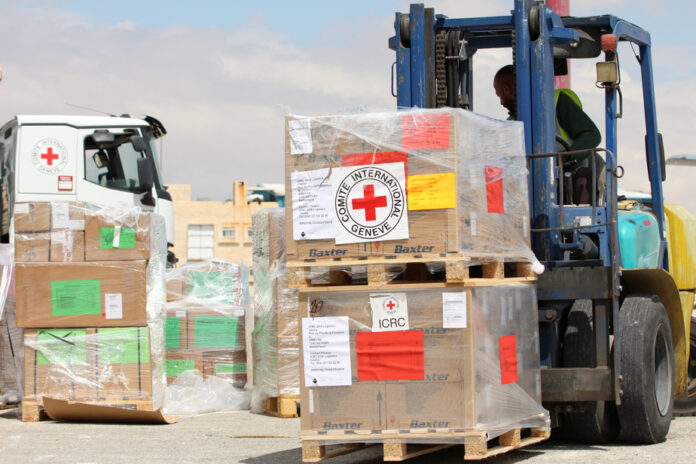(Khartoum) A first plane loaded with “eight tons” of aid including “surgical equipment” landed in Sudan where it should “treat 1,500 patients” in the country where most hospitals are out of service due to fighting between the two rival generals.
The plane, which is also carrying humanitarian personnel, took off from Amman and landed in Port Sudan, a coastal city 850 km east of Khartoum where the fighting is concentrated. Sudanese airspace has been closed since April 15 as fighting began at Khartoum airport.
According to the International Committee of the Red Cross (ICRC), this shipment contains “anaesthetics, dressings, suture material and other surgical items”.
This equipment “will make it possible to treat 1,500 wounded, we now hope to be able to deliver it quickly to the largest hospitals in Khartoum”, ICRC regional director for Africa Patrick Youssef told reporters.
But, he warns, to deliver relief “we need more security guarantees in Khartoum and Darfur”, where the majority of the fighting, which has claimed more than 500 lives in more than two weeks, continues.
In Darfur, the situation is “very difficult”, he adds, “people are on the move, normally we would follow them but in the current situation it is impossible”.
For doctors in Sudan, it is above all necessary to restore water and electricity and to get out the fighters who occupy certain establishments. Alternative solutions are also needed for the 15 bombed hospitals and teams to take over from doctors who sometimes have not stopped working for two weeks.
“Only 16% of hospitals are functioning in Khartoum according to the UN, the situation is catastrophic due to the lack of doctors and the lack of medical equipment” also alerts Mr. Youssef who specifies that if “in normal times, a hospital must be replenished every two days, in time of war, especially if as at the moment the hospitals are looted and attacked, this period is getting shorter”.
It is also necessary, warn the doctors, to find the resources to take care of “12,000 patients” who, without dialysis in hospitals where the stocks are empty and the generators run out of fuel, “are at risk of dying”.
“Chronic diseases will be a priority for us going forward,” Youssef replies.
First, says the Geneva-based international organization, “the ICRC is preparing to charter a second plane to deliver more medical supplies and humanitarian personnel”.
“We hope this will pave the way for humanitarians to help resolve the crisis,” confirms Mr. Youssef.
Since April 15, 528 people have been killed and more than 4,000 injured, according to the Sudanese Ministry of Health. But this assessment remains very provisional as the bodies littering the streets are inaccessible and therefore impossible to identify.
“The Sudanese Red Crescent is on the streets trying to recover the bodies,” according to Mr. Youssef.


















